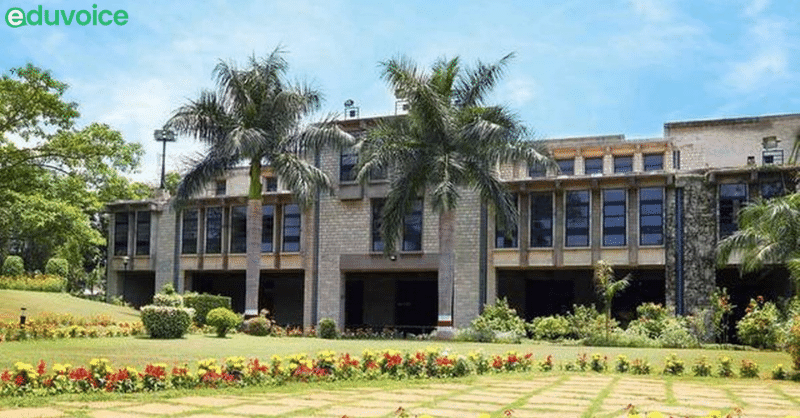Following the success of the pilot cohort, IIM Bangalore announced the launch of the ‘Mahatma Gandhi National Fellowship’ (MGNF) 2021-23 in collaboration with the Ministry of Skill Development and Entrepreneurship (MSDE), Government of India, and State Skill Development Missions (SSDMs).
The Mahatma Gandhi National Fellowship 2021-23 has been rolled out nationally in more than 660 districts across India. The program is being hosted by nine IIMs (IIM Ahmedabad, IIM Bangalore, IIM Jammu, IIM Kozhikode, IIM Lucknow, IIM Nagpur, IIM Ranchi, IIM Udaipur, and IIM Visakhapatnam) separately, with IIM Bangalore managing the common admission process.
The Mahatma Gandhi National Fellowship is a unique opportunity for young, dynamic individuals to combine classroom sessions at IIM with engagement in the district economies to promote skill development and skill planning.
Phase 2 of Mahatma Gandhi National Fellowship
Launched last year, the implementation of the program has been a great success and has garnered huge appreciation from various stakeholders.
IIM Bangalore Director Professor Rishikesha T Krishna describes MGNF Phase 2 as an exciting opportunity for young dynamic individuals who are looking for opportunities outside the normal.
Based on our Phase 1 experience, we know that many of our past Fellows are having an impact on the District Skill Committee that they have been supporting; some have gone on to create very interesting projects that are creating skills as pre-cursor for employment by integrating ideas from business management, public policy, and development economics learned at IIMB and understanding their district’s potential,” he said.“Some of the initiatives are with SHGs, others are market-based interventions strengthening pre-existing markets in turmeric, sarees, or garlic in an attempt to scale and integrate with new markets,
He explained.
“As we initiate Phase 2 MGNF, i.e. a nation-wide roll-out, we expect to see new geographies in which MGNF will be active and a larger impact of the program as more Fellows join the initiative and are mentored with 8 other impaneled IIMs in an attempt at creating change for a ground-up, district-based, skill-based economy in India,” he said.
Programme structure
Describing the programme structure, Professor Sankarshan Basu, faculty from the Finance and Accounting area at IIM Bangalore and one of the MGNF Programme Directors, said the programme incorporates two modules.
“MGNF is designed to decentralize the process of development instead of a top-down approach of development, this has the potential to drive the development of the country in a bottom-up approach,” he said.
But most importantly, this is a program that encompasses the benefits of academic inputs from IIMs during the Academic Modules (AMs) as well as the continuous faculty mentorship and the field experience garnered by the Fellows as a part of the District Immersions (DIs),
he added.
The AMS focus on management principles, economic development, public policy, and soft skills and have been designed to address the needs of the MGN Fellows in allowing them to understand opportunities and challenges to enable a flexible, skill-based economy in their district and to identify opportunities and infrastructure needed to support it.
The District Immersion module would provide a framework to help the MGN Fellows negotiate the district-specific challenges in the context of documenting institutional weaknesses at the district level, identifying schemes that work well, undertaking detailed resource mapping, and formulating a rigorously researched District Skill Development Plan (DDP) that chart out a strategy for economic development at the district.
Learnings from the pilot program
Programme Director and faculty from the Centre for Public Policy at IIM Bangalore Professor Arnab Mukherjee says, “In Phase 1, the MGNF had to deal with disruptions due to Covid-19 like every other activity in the country.”
“The MGNF has proved to be institutionally flexible, and, in many districts, has worked with Covid-19 recovery efforts that range from undertaking tracer studies of migrants to undertaking welfare activities for those displaced due to Covid-19,” he said.
“Phase 2 extends the program nationally to all remaining districts in the country in partnership with various IIMs from across the country,” he added.
“Our Phase 1 experience tells us that the Fellows have been instrumental in supporting the district skill ecosystems in several parts of the country and have been critical to kick-starting new initiatives that have strengthened skilling,” he said.
Expanding this nationally can truly be impactful for the whole country at a time when growth concerns are paramount, and the expansion of formal employment opportunities are limited,
The professor added
For More Such Articles, News Update, Events, and Many More Click Here






